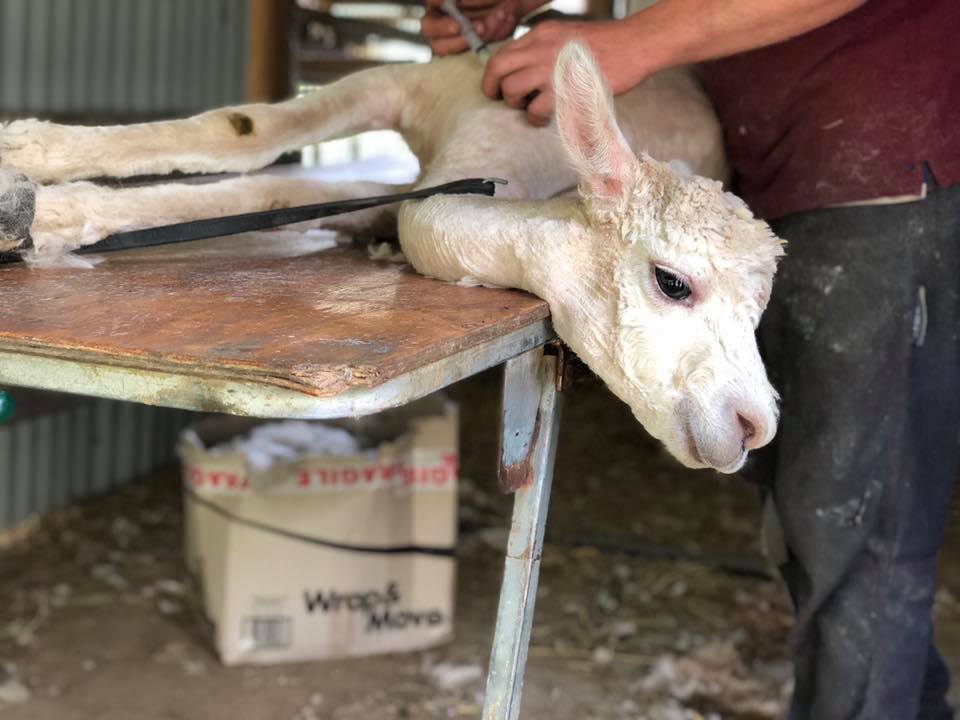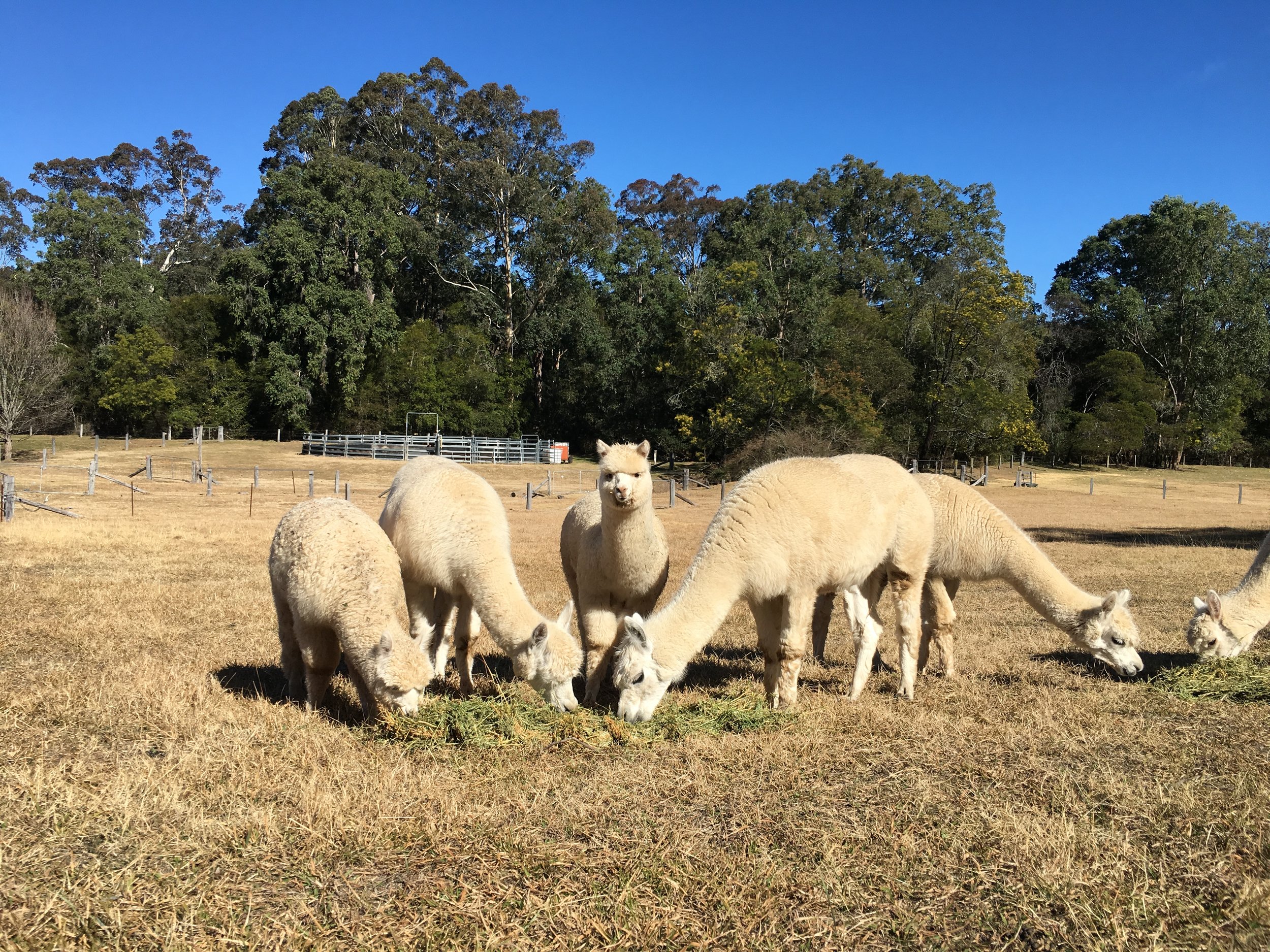We are all feeling the mercury rise, and this week extreme heat is emerging as an issue around the country.
Managing animals in high temperatures requires good forward planning. Keeping an eye on the weather forecasts, and developing a plan for days of high to extreme temperature is essential in ensuring that your animals will have sufficient shade and water on those very hot days.
Extreme heat causes significant stress for alpacas. There are a few simple guidelines you can follow to reduce the impacts of high temperatures on animals.
The provision of a plentiful supply of clean, cool water and shade is essential.
Water troughs or containers should be large enough and designed in such a way that all animals have easy access. The number of watering points and/or water flow should be increased if a large number of animals are kept together. Troughs or containers should be firmly fixed so they cannot overturn. They should be kept clean and should be designed and maintained to prevent injuries.
Animals need to be provided with shelter during extended periods of extreme temperatures. Shelter is especially important for very young or old animals or animals that are in poor condition or birthing.
It is recommended not to handle animals in extreme heat unless absolutely necessary. If necessary, make sure it is done as early or late in the day as possible when temperatures are lower.
Animals at high risk of heat stress include young animals and dark coloured animals These animals should be watched more closely for signs of heat stress during days of high temperature. Remember that alpacas are more prone to heat stress than sheep and goats. There are many signs of heat stress that you can look for in your animals. Some general signs of heat stress include:
panting
increased respiration rate
increased water intake
loss of appetite
listless/lethargy
increased salivation
in severe cases may become unconscious.
Remember: The most important things you can do for your animals in hot weather is to provide them with rest and shade in the hottest parts of the day, and plenty of clean cool water.
You have a responsibility to ensure the well-being of animals under your care. Animal Welfare - it's your duty to care.
This information taken from the Australian Alpaca Association. Visit their website for more information on caring and health of Alpacas. https://www.alpaca.asn.au





















